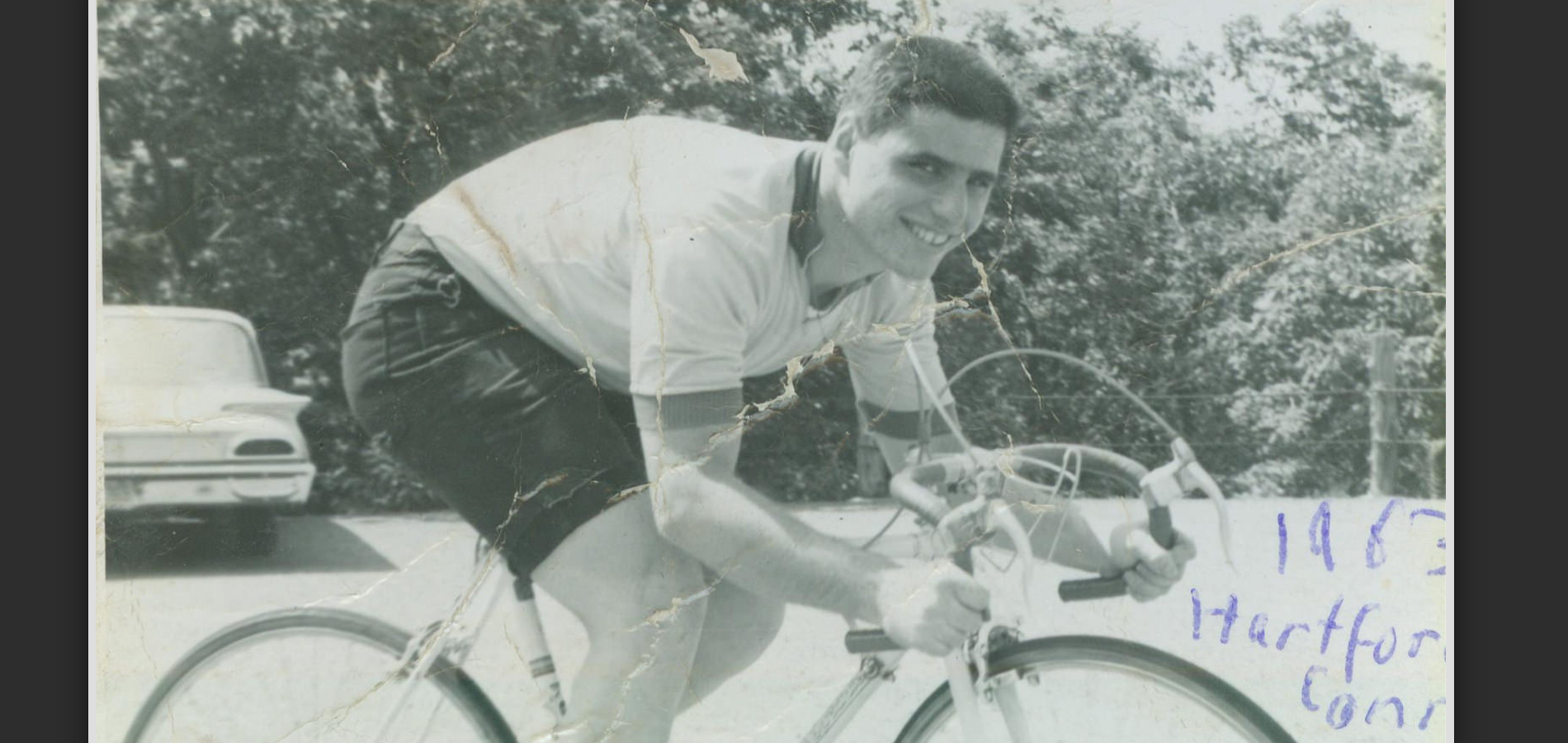
This Would-Be Olympian Kept Shabbos and Experienced a Miracle
In the 1960s, New York-born secular Jew Sam Zeitlin loved cycling and wanted to follow his passion all the way to the Olympics. He trained incredibly hard and even earned himself the nickname, “Brooklyn Lightning.” He made it all the way to the U.S. Pan American Cycling Team and attended the 1967 U.S. Olympic Pre-Trials, where a premature move of raising his arms in victory disqualified him from winning. In the book Living Shabbos by Rabbi David Sutton, it is reported that “One day, [Zeitlin] was nearly knocked off his bicycle as he was training, and someone approached him shouting, “We’ll get you next time, Jew.” Sam realized that as a Jew, he had no chance of making the U.S. Olympic team, and so he decided he would try to get to the Olympics with the Israeli team.” While he attempted to fulfill his lifelong dream in Israel, he would soon be presented with one of the greatest challenges of his life.
Zeitlin was scheduled to teach physical education at a secular school, but when the job fell through, he took one at a more religious school instead. There, he fell in love with Judaism and started observing Shabbos. His fighting streak never left him and he took up competitive cycling in Israel. “Eventually, he became fully observant, hoping that his religious observance would not hinder his dream of competing in the Olympics.” He went so far that he qualified to be a member of the 1972 Olympic Team. But the anti-religious Israeli Olympic Committee told Zeitlin that his competition would be held on Shabbos. On the one hand, the fulfillment of his Olympic dream was at hand. But on the other, he did not want to break his newfound commitment to Shabbos observance.
Sutton says, “[Zeitlin] had already bought an airline ticket for the trip to Germany for the Olympics, but he decided to forget his dream. He was not willing to violate Shabbos for the sake of competing in the Olympics, despite the fact that this was his life’s dream. Once he decided to withdraw, all the members of the cyclist team dropped out, as well. Israel sent athletes to compete in other sports, but not cycling.” With a heavy heart, Zeitlin turned down the offer to join the team and stayed in Israel as his fellow athletes flew to Munich to represent Israel. There, a Palestinian terror cell known as Black September took eleven members from the Israeli Team hostage in the Olympic Village. In the two-day ordeal that followed, all eleven athletes were killed, along with a German policeman and five of the terrorists. Zeitlin was horrified and simultaneously relieved. Had he chosen to compete, he would have been housed with the Wrestling Team, all of whom were killed.
Shocked, Zeitlin mourned alongside the rest of Israel, as he privately thanked G-d for saving his life*. Zeitlin married and moved back to New York, raising a family in Brooklyn. He continued to coach cyclists until he passed away thirteen years ago. While the Olympics may now be more friendly towards Shabbos-observance, the trail that Zeitlin blazed will never be forgotten. As we cheer on Orthodox Jewish athlete AJ Edelman in the 2018 Winter Olympics, we remember Zeitlin’s commitment to Shabbos and our brothers and sisters whose lives were tragically cut short in Munich.
*While we can and should thank God when we are saved from tragedy, we do not have prophecy in our day and age and cannot say why some are spared and others are killed.
If you found this content meaningful and want to help further our mission through our Keter, Makom, and Tikun branches, please consider becoming a Change Maker today.








9 comments
Sort by
C
This is really a terrible headline for this story. What is the “miracle”? That God saved this man because he refused to compete on the Sabbath but he let the other Israeli Olympians die for some reason? This is so close to hinting that God specially protects believers and if you don’t follow the precepts of your religion maybe something terrible will happen to you. The opposite to this sadly occurs as well (a fire breaks out killing a family because they left a heating appliance on during the Sabbath, or left Hannukah candles burning after they went to bed, as sadly just happened in NY). All of scripture tells us that God never countenances the death of the innocent. We don’t know why terrible things happen to the innocent in this life, but we do know that religious observance is not some kind of good luck charm that keeps bad things from happening to us. This is the same reasoning that tries to argue that those killed in the Holocaust must have been under some kind of divine judgement. It also ends up making people turn away from religion when they experience a tragedy because they ask “how could God let this happen to me?” as if religious observance were supposed to protect them.
Thanks for your comment, Catholic Mom, but we do not believe that we know why bad things happen to good people and why things good things happen to bad people. We note this in the article. We have written about this concept on this site and spoken out against those who promote this simplistic approach. While we can’t make any rules or predictions when someone’s life is saved, it would be remiss to not acknowledge the miraculous nature of the event when a life is saved. Sam felt there was a connection and felt protected in that moment by Shabbos. It is not a magic pill and anyone who claims it is has not studied Jewish history. But in particular moments, perhaps God does grant an extra protection.
We’re not making a spiritual connection here and saying “Oh, in the MERIT of keeping Shabbos, he was saved.” What we’re doing is pointing out a fact – Zeitlin chose to keep shabbos. As a DIRECT CONSEQUENCE, he was not a participant in the Olympics that year and was not present at the time of a terrorist attack that likely would have placed him in danger (because they were targeting Israelis – which Zeitlin was – not just the wrestling team). One reason to call it a miracle would be because he would have been rooming in the building in which the hostages were taken. Because he chose to keep Shabbos, he wasn’t present, and was therefore saved from a dangerous situation.
Sure, but if you’re leaving out the religious merit of it, that’s like saying he tried out for the team and he wasn’t feeling well that day and he didn’t make it and subsequently he wasn’t in Munich and didn’t get killed. Where is the miracle? I assume that lots of people didn’t make the team or didn’t attend the Olympics, or for that matter didn’t happen to be in that apartment on that day. Generally a miracle is assumed to be a divine intervention — that is, God intervened in or changed the course of events for a purpose. Yesterday was Ash Wednesday. If a student at the school in Florida where that horrible massacre occurred yesterday stayed out of school to go to mass, would that be a miracle? How about if they were just home with the flu? A miracle might be if the gun jammed or in some other way fewer or no people died. In the present story, someone else took this man’s place, so they either died or were equally at risk of dying. So a miracle for him and just really bad luck for them? I think it’s very, very problematic when not happening to be in a place where some terrible tragedy or evil befalls a group of people is called a miracle, especially when it is directly linked to religious observance. I think it encourages superstitious motivation for religious observance and I also feel that it’s disrespectful to the people who died.
We believe that miracles do not need to just be supernatural. The Purim story is the perfect example of that. The right things happening at the right time causing salvation. We were clear to note in the article that we do not know God’s ways and why some are saved and some are killed. That, indeed, is a dangerous road to go down. At the same time, in our tradition to must acknowledge when we are spared from tragedy.
Dear “Mom”, please see the “note”: *While we can and should thank God when we are saved from tragedy, we do not have prophecy in our day and age and cannot say why some are spared and others are killed.” In Judaism we understand that we cannot understand Hashem’s actions. However, when we are indeed spared from tragedy we use this time to express additional gratitude to Hashem for saving us. We even have a special prayer called “bentching Gomel”, a special prayer for deliverance from danger. Fact: if this man had violated the sabbath and gone on the flight, he would have been killed. Fact: He decided to keep the Sabbath and the end result was that he was saved. He is grateful. We are grateful for him and was are inspired by it. A story that I heard recently was of a group of talmidim and their rebbe sent to the gas chambers. They all sat down on the floor with their rebbe and he told them that they were all about to die al kiddush Hashem (for the honor of G-d). He warned them not to become arrogant at this moment that they are so holy and get this honor, rather to humble themselves to be worthy. Yes, bad things happen to good people. All the more reason to shout from the rooftops and give gratitude to Hashem when good things happen to good people. Wishing you many blessings.
I’m just curious who could have lived to tell this story about the rebbe and his students in the gas chamber.
Well, I think we can agree that we should all thank God daily for preserving us through the day that passed and the blessings we will receive in the day to come, including the blessing of life itself.